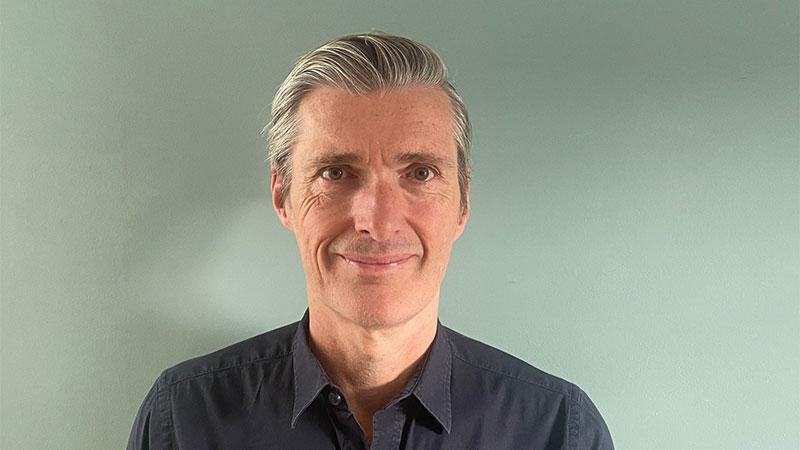Jim Grice is the Course Leader for the Digital Media and Communication BA course at the University of Westminster which is currently available through Clearing. With his experience working in radio, TV and online, Grice brings a multi-platform focus to his teaching to ensure students are well-prepared to start their careers in modern newsrooms.

Grice has worked in the UK news industry for 25 years, taking on senior editorial roles at the BBC, the Press Association, Channel 5, Sky and London Live. He has covered many of the biggest news stories and events in that time, from the death of Princess Diana to the 2012 London Olympics.
He started his journalistic career working for BBC Radio Devon, which was a far cry from the suburban London where he grew up. With each news package he got into the swing of things and grew as a journalist. During his time in Devon he covered a range of stories, including the rise of mad cow disease. With his journalist instincts he took to the farms to interview farmers and record the sound of the cows for his audio piece. Little did he expect to be licked by a cow mid interview – a story that shows that journalism always throws some unexpected curve balls.
After his stint in Devon he returned back to London where he worked for national TV, including BBC News and BBC Breakfast, as well as agencies such as the Press Association.
Despite a long career in the media, Grice did not start out as a journalist. He worked previously in the civil service after he completed a Master’s in English Literature and Philosophy. He got his first taste of journalism when there were strikes at his company and he ended up being interviewed by the press and found joy in the buzz that came from reporting on events as they unfolded. He continued to dip his toes into the world of the media when he was offered the opportunity to create audio recordings for the German broadcaster ARD, formerly RDF, about going out in London, looking at the best clubs and spots in the capital.
With the journalism bug well and truly caught he decided to apply for courses and ended up studying in Falmouth, Cornwall.
Looking back at his career, a key highlight was working as Head of Video for PA covering the London 2012 Olympic Games.
He said: “The London Olympics was amazing. We had an office in the media centre and the whole time I just kept thinking I can’t believe I am being paid for this!”
His journey to Westminster started when he was working at the local TV news broadcaster London Live, where he went out across London to look for students to take part in internships. With the connections made he began to give talks to students and sit on panel discussions and soon was called up to teach at the University.
About teaching he said: “What I love the most is when you see students who perhaps don't always have tonnes of confidence really go for it and produce work that they're really proud of. It’s really nice, particularly to people coming towards perhaps their third year and you see that they've not been the most confident and then you see them really blossom and build that confidence and have faith in their own abilities because ultimately, if you've got faith in your own ability, you can do it.”
Grice teaches on and leads on a range of Digital Media courses at the University of Westminster. Through studying on these courses, students have the flexibility to try out a range of communication styles to find the best fit for them. Each course weaves into the other to ensures students can get a real grasp of the different disciplines and find the one that suits them the best.
Grice has been key in organising work placements for students at London Live, where aspiring journalists at Westminster can collaborate with the London-based TV channel to create a series of documentaries covering a range of issues from AI to Motorsport and showcase them live on the channel.
Grice added: “The best thing you can do is to have your eyes and ears really open. Everything that you consume feeds back into what you could be doing later, so get engaged with as much content as you possibly can and look at things that you might not usually look at. With the content you watch or read, start thinking about how it has been made and just immerse yourself in it.
He continued: “Be aware of anything that might be half an opportunity because they will always be worth exploring and checking out. It might not lead to anything, but you're bound to learn something on the way.”
Find out about Media and Communication courses available through Clearing at the University of Westminster.


